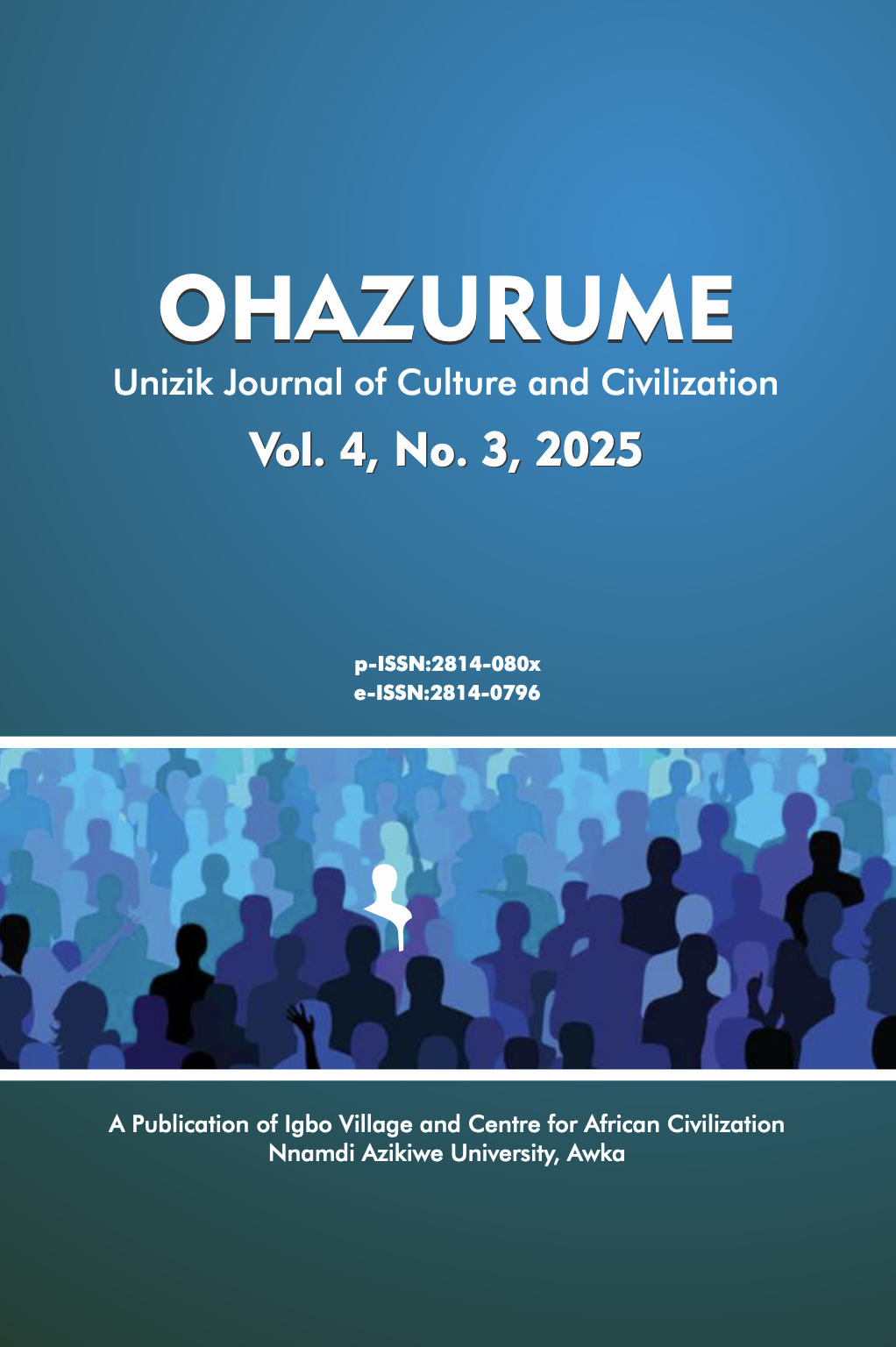Postcolonial Capitalism and Eco-Related Challenges: Insights from Nigeria’s Sacred Groves
Résumé
Postcolonial capitalism in Nigeria has driven the exploitation of sacred groves, eroding cultural heritage and causing serious environmental abuse, raising urgent concerns about the loss of both ecological balance and indigenous identity. There is a research gap in understanding how capitalism shaped by colonialism contributes to the cultural displacement of sacred groves, resulting to environmental, economic, political, biodiversity loss and security consequences in Nigeria. This research therefore investigates the ways in which the capitalization of Nigerian’s sacred groves causes cultural displacement, and has widespread effects. It seeks to reveal the underlying relationship between post-independence capitalism and its effects in Nigeria by exploring these interactions. The study uses David Harvey’s Capitalist Accumulation and Dispossession Theory to examine the socio-political, economic, cultural, and ecological landscape of Nigeria as a result of colonial-inspired capitalism and the environmental effects of cultural loss. The study utilizes the ethnographic method of data collection through observation and key informant interviews. The method provides deep insights into the cultural significance of the groves, the impacts of displacement, the ecological and other consequences of neocolonialism in Nigeria. This approach is relevant as it captures the life experiences and cultural contexts essential for understanding the interplay between persistent colonial capitalism and its implications in Nigeria. The paper illustrates how the combination of capitalist exploitation and cultural erosion has led to significant environmental and social challenges. The monetization of natural resources undermines traditional ecological ethics, intensifying climate vulnerability and community disenfranchisement. With a focus on the need for sustainable and culturally inclusive answers to the continuing global discussion on climate change, this study provides vital insights into the wider consequences of cultural displacement within postcolonial settings.


